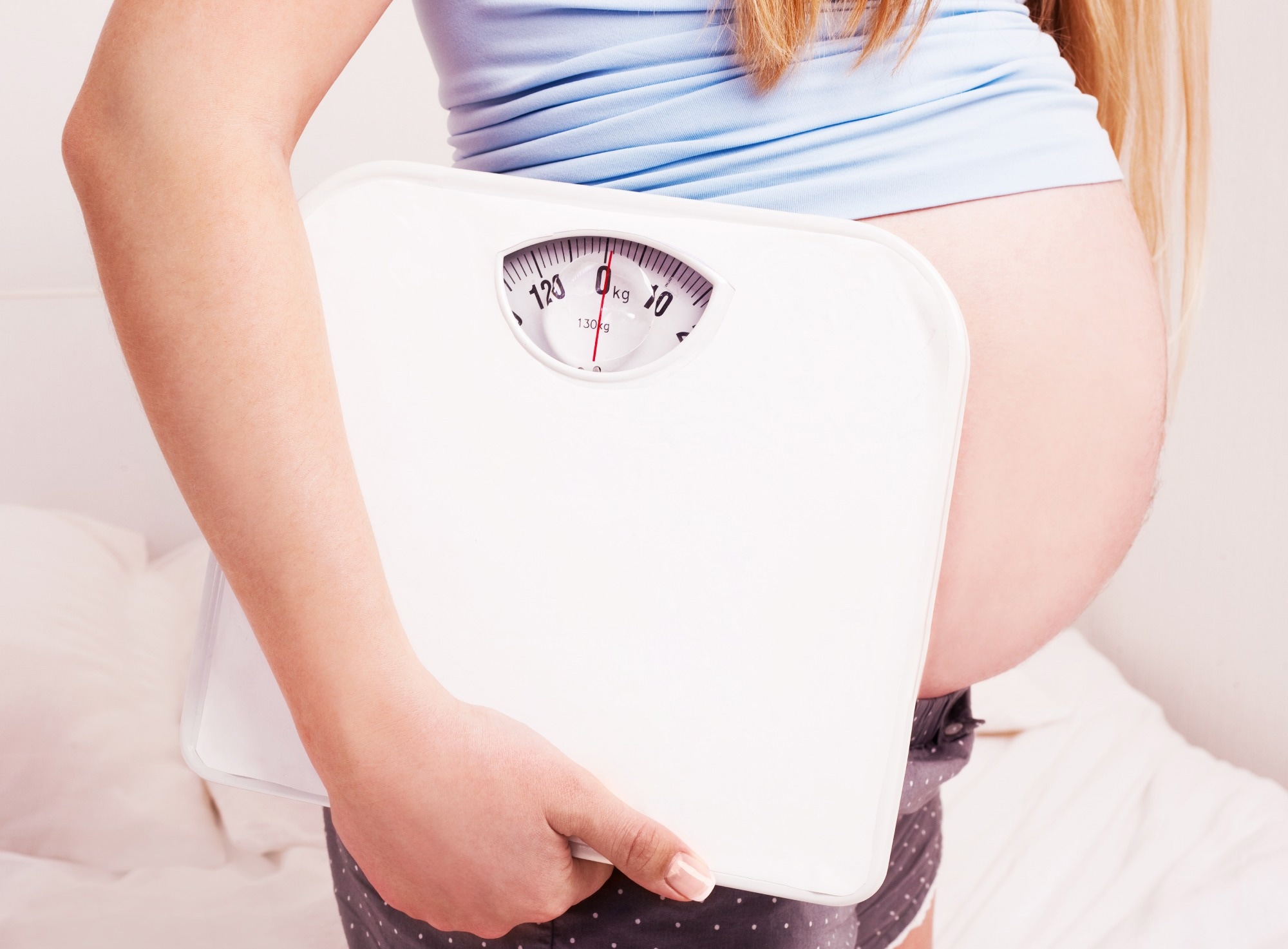Excessive weight gain during pregnancy and its retention postpartum are risk factors for future metabolic and cardiovascular disease in a subset of women. However, there is little scientific support for weight management in obese women.
 Study: Dietary treatment postpartum in women with obesity reduces weight and prevents weight gain: a randomized controlled trial. Image Credit: photolin / Shutterstock.com
Study: Dietary treatment postpartum in women with obesity reduces weight and prevents weight gain: a randomized controlled trial. Image Credit: photolin / Shutterstock.com
Introduction
Women who are obese before pregnancy begins are at a greater risk of not losing the excessive weight gained during pregnancy or retaining their already excessive body mass after childbirth. Obesity is correlated with the number of pregnancies and childbirths, perimenopausal weight gain, as well as metabolic syndrome and abdominal fat deposition.
Pregnancy often triggers a cycle of increased weight gain and retention in obese women to a greater extent as compared to leaner women. Thus, the risk for long-term chronic disease may increase with each pregnancy in these women. Likewise, the increased risk of chronic disease may also be exacerbated for both the mother and fetus in subsequent pregnancies in women who gain weight between pregnancies.
Postpartum weight retention (PPWR) is an important target to improve metabolic health. Previous studies have indicated that the key period for PPWR appears to be the first six months after childbirth.
Women who do not lose weight at this point usually have high BMI later in life. Nevertheless, women with a high BMI at childbirth often work hard to lose the weight they gained during pregnancy during this period and have a strong motivation to live healthier lives.
In some women, breastfeeding can support weight loss due to the excessive energy requirements for milk production. In these women, a loss of about 0.5 kilograms (kg) every week does not disrupt lactation. Importantly, not all women lose weight while breastfeeding, with some women instead experiencing continuous weight gain due to increased appetite and energy expenditures.
Earlier research has shown the efficacy of dietary interventions such as Lifestyle for Effective Weight loss during Lactation (LEVA) in the postpartum period, even at the primary care level. The effects of these interventions extend beyond weight loss to improve insulin sensitivity and lower blood lipid levels.
However, such studies have rarely targeted obese women, with women with a BMI above 35 kg/m2 rarely included in these studies. Thus, despite its considerable potential to induce weight loss, the clinical effectiveness of LEVA in these women remains unknown.
About the study
Study participants were assessed at about eight weeks postpartum and after a 12-week period of dietary treatment or control intervention beginning at eight weeks. The dietary intervention was based on the LEVA method, in which women were advised to limit sweets and snacks, including caloric drinks, to 100 grams (g) each week.
Regular foods were replaced with similar products containing less sugar and fat. Furthermore, study participants were encouraged to cover half of their lunch and dinner plates with vegetables, while also reducing their portion sizes at each meal.
Study participants were also encouraged to participate in exercise using the example of 45-minute walks with the stroller four times every week. All study participants were contacted twice a week through text messaging, during which they were asked to provide their most recent body weight measurements.
Study findings
The current study included a small group of 29 women with an average BMI of 40 kg/m2, which is significantly greater than the obesity limit of 30 kg/m2. All study participants were from Oslo, Norway, with a median age of 32.
About 86% of the study cohort were breastfeeding, 59% of whom were exclusively breastfeeding and 28% were partially breastfeeding. By 22 weeks postpartum, 17% of breastfeeding mothers were still exclusively breastfeeding, 57% were partially breastfeeding, and 26.1% stopped breastfeeding. By 12 months, eight women were still breastfeeding.
The dietary treatment group lost an average of about 2.3 kg as compared to a gain of about 1.7 kg in the control group at the end of the 12 weeks. When re-measured at one year, study participants who were prescribed the dietary intervention lost 4.2 kg, while the control group gained 4.8 kg.
In the treatment group, waist circumference and PPWR were also reduced. At one year, fasting blood sugar levels were also lowered. There were no other changes observed in other metabolic markers.
The dietary treatment postpartum reduced weight and prevented weight retention or weight gain in women with obesity.”
Journal reference:
- Ohman, E. A., Fossli, M., Ottestad, I., et al. (2023). Dietary treatment postpartum in women with obesity reduces weight and prevents weight gain: a randomised controlled trial. BMC Pregnancy and Childbirth. doi:10.1186/s12884-023-05976-w.